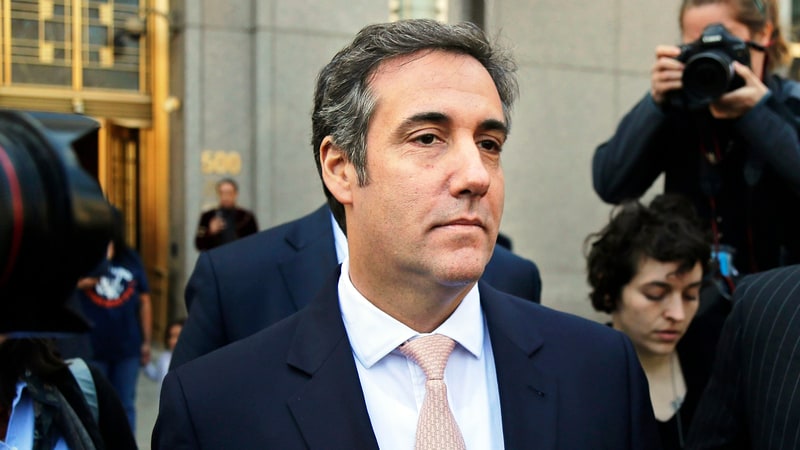A few years before he started working for Donald Trump, and long before he gave legal advice to people like Fox News personality Sean Hannity, Michael D. Cohen had a different kind of clientele. Cohen roamed the courthouses of New York City, filing lawsuits on behalf of people with little means who were seeking compensation for the injuries they suffered in car collisions. Many personal injury lawyers make their living this way, but there was something striking about Cohen’s cases: Some of the crashes at issue didn’t appear to be accidents at all.
A Rolling Stone investigation found that Cohen represented numerous clients who were involved in deliberate, planned car crashes as part of an attempt to cheat insurance companies. Furthermore, investigations by insurers showed that several of Cohen’s clients were affiliated with insurance fraud rings that repeatedly staged “accidents.” And at least one person Cohen represented was indicted on criminal charges of insurance fraud while the lawsuit he had filed on her behalf was pending. Cohen also did legal work for a medical clinic whose principal was a doctor later convicted of insurance fraud for filing phony medical claims on purported “accident” victims. Taken together, a picture emerges that the personal attorney to the president of the United States was connected to a shadowy underworld of New York insurance fraud, a pervasive problem dominated by Russian organized crime that was costing the state’s drivers an estimated $1 billion a year.
Cohen was never charged with any wrongdoing in any of these cases and there is no evidence that he knowingly filed false claims, which potentially could be grounds for criminal charges and disbarment. It was unclear whether any materials dating from his days as a personal-injury attorney were among the items seized in an April 9th raid on Cohen’s offices, home and hotel room. Messages left with Cohen and his attorney were not returned.
In one case, Cohen filed a bodily injury lawsuit on behalf of a woman named Tara Pizzingrillo, who was a passenger in a car that was struck by a rented vehicle in 1999 in the Sheepshead Bay neighborhood of Brooklyn. In the 2002 complaint Cohen drafted and filed, Pizzingrillo sued the driver of the rental, Brian McFarland, claiming that she suffered bulging discs, and demanding $1 million from Enterprise Rent-A-Car’s parent company, ELRAC Inc.
While the case was making its way through the courts, however, both Pizzingrillo and McFarland were indicted for their roles in a criminal ring that staged accidents using rented U-Haul trucks. Pizzingrillo, McFarland and others took turns renting U-Hauls, and, after obtaining insurance coverage, plowed them into vehicles occupied by friends in order to file bogus injury claims. Damian S. Jackson, who prosecuted the case when he worked at the New York Attorney General’s office, did not recall Cohen’s lawsuit, but said the events it described were typical of the ring’s scheme. “They were basically being crash test dummies in each collision,” Jackson says. The U-Haul ring submitted more than $350,000 in fraudulent personal injury claims before they were caught. Both Pizzingrillo and McFarland pleaded guilty to third degree insurance fraud, and Cohen’s lawsuit was withdrawn. Pizzingrillo did not respond to a message seeking comment.
Not only did Cohen represent clients in staged accidents, but some of his clients may not have been in the vehicle when the phony crash occurred. Another of his clients, a Haitian immigrant named Marie Pierre, was sued by State Farm in 2001, after an investigation determined she was involved in another fraud ring that used stolen identities. “Her account of the accident is [so] completely contradicted by the police report that it must be questioned whether she was present at the event,” a lawyer for State Farm wrote. Pierre testified that the black 1988 Chevrolet Caprice she was riding in was being driven by a man; the police report listed the driver as a woman. Pierre identified the driver of the other car involved in the crash as black; he was white. Pierre said the vehicle she was riding in was stopped when it was struck in 1999 on Avenue U in Brooklyn; it was moving.
In another case brought by State Farm, court documents list Cohen as the defense attorney for four individuals charged in a civil action of being part of another ring that allegedly staged at least 10 accidents in 2000 and 2001. Cohen’s clients did not contest the charges that their 2001 accident was staged and State Farm was granted a default judgement. Another Cohen client, Nonna Fayerberg, was struck by a man involved in an insurance fraud ring.
At the time Cohen was representing plaintiffs involved in these fraudulent accident claims, a cottage industry of staged accidents had sprung up in New York to take advantage of the state’s no-fault insurance law. The law, which required insurers to pay up to $50,000 to victims of an auto accident, had quickly attracted criminals who discovered they could collect a quarter of a million dollars by intentionally crashing a car packed with four of their friends. Even though the crashes were staged, people still got hurt. At least one deliberate crash took the life of a 71-year-old Queens woman who was killed when her car was struck by a driver attempting to commit insurance fraud.
Cohen’s first job out of law school was for Melvyn J. Estrin, who had been exploiting New York’s insurance law for decades. Back in the 1970s, Estrin sent letters to physicians encouraging them to take advantage of the state’s new no-fault insurance law and run up the medical bills on accident victims. (A U.S. Senator got hold of one of these “Dear Doctor” letters and published it in the Congressional Record back in 1976 as an example of conduct that “borders on the unethical.”) In 1995, Cohen’s last year at the firm, Estrin was indicted in a scheme to bribe insurance adjusters to inflate damage estimates and expedite claims. He pleaded guilty to second-degree bribery.
Cohen’s work on behalf of accident victims was, if nothing else, prolific. In Cohen’s challenge to the April 9th raid, his attorneys told a Manhattan judge that Cohen had “hundreds of different clients” from 1996 to 2006, when he ran his own private legal practice. “Negligence,” which likely included the bodily injury claims filed on behalf of accident victims, then represented 90 percent of his legal work, Cohen said in a unrelated deposition obtained by Rolling Stone. Much of this work consisted of filing private arbitration claims, which are typically not a matter of public record. However, auto insurers dragged Cohen into court nearly 100 times between 1998 and 2003, asking judges to halt numerous claims he had filed for a variety of reasons, including fraud.
It’s not clear how the “hundreds of different clients” Cohen represented found him. While many personal injury lawyers take out ads on TV or plaster their faces on highway billboards, Cohen kept a relatively low profile; one of the addresses he used on accident cases was a remote taxi garage in Long Island City, Queens, where he managed a fleet of yellow cabs with his Ukrainian-born business partner, Simon Garber. Investigations from the same period by insurers and the FBI found other lawyers worked within sophisticated insurance-fraud networks that could have been cooked up by Saul Goodman, the ethically compromised lawyer on the hit TV series Breaking Bad, though there is no evidence that Cohen ever knew that any of his clients were involved in these schemes. Some unethical lawyers paid “runners” or “steerers” who staged accidents or monitored the police radio, and then raced to the scene of a crash to drum up business before the ambulance arrived. Neighborhood medical clinics, often established for the sole purpose of billing insurance companies for unnecessary tests and medical services, would refer clients to lawyers in exchange for kickbacks. A 2006 report on auto insurance fraud by the New York Attorney General’s office noted that “crooked lawyers are necessary to advance fraudulent lawsuits based on feigned injuries.”
Incidentally, Cohen also did legal work for Life Quality Medical P.C., whose principal, according to a ProPublica/WNYC investigation, was Dr. Zhanna Kanevsky. Kanevsky was indicted in 2005 by the New York Attorney General’s office on charges of insurance fraud, grand larceny and falsifying business records for her role in a fraud ring that was secretly run by a Ukrainian émigré and his wife. According to the indictment, all clinic patients were given three expensive MRI scans, kidney sonograms and nerve testing, and all received the same medical treatment, regardless of injury: physical therapy, chiropractic care and acupuncture treatments several times a week. Kanevsky pleaded guiltyand lost her medical license for three years. Cohen, who was the contact attorney for any lawsuits against the clinic, was not implicated in the case. However, an attorney named Albert Rudgayzer was indicted; according to prosecutors, Rudgayzer paid the clinic owners for referring clients and then shared a part of the proceeds from settlements of bodily injury claims. He ultimately pleaded guilty to a misdemeanor and was ordered to pay about $120,000 in restitution and fines.
Several investigations have also found that Russian organized criminals were behind what turned out to be massive insurance fraud operations. A sprawling investigation in Suffolk County, New York that indicted hundreds of people involved in more than 1,000 phony accidents in the early 2000s was known as “Operation BORIS” – an acronym for Big Organized Russian Insurance Scam. The frauds have only grown in subsequent years. A 2012 investigation by the FBI found a Russian organized crime ring (which involved three attorneys) was behind a $275 million auto insurance fraud ring, the largest in history. (One of the defendants in that case, Michael Barukhin, moved into a Trump-branded tower in Sunny Isles Beach, Florida while his case was pending.) “Back in the Soviet days, ripping off the government may have been the single largest industry outside the military in the entire country,” says James Quiggle of the Coalition Against Insurance Fraud, a not-for-profit group funded by insurers. “What developed was an entire generation of hoods with very good criminal skills.”
Daniel Costello contributed reporting for this story.
Source: https://www.rollingstone.com/shady-cases-michael-cohen-personal-injury-practice-w519679

